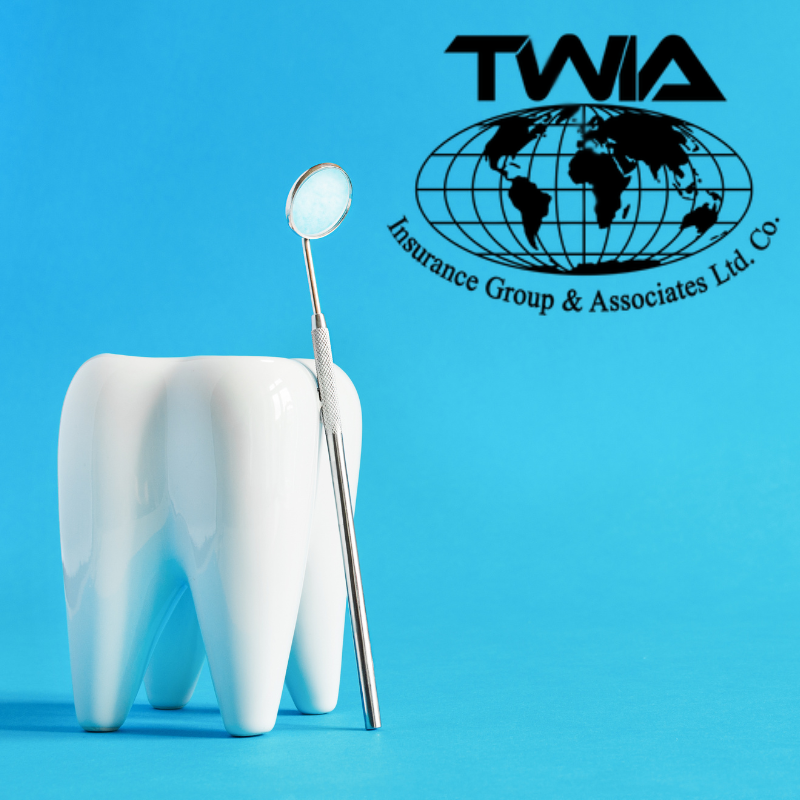Exploring the Impact of Dental Insurance Changes in Massachusetts

Are you curious about the effects of dental insurance changes in Massachusetts? In this article, we will delve into the impact that these changes have had on the dental care landscape in the state. From increased access to affordable dental services to potential challenges faced by dental providers, we will explore the various aspects of these insurance changes. So, sit back and get ready to discover how the dental insurance landscape in Massachusetts has been transformed.

Overview of Dental Insurance in Massachusetts
Dental insurance plays a crucial role in ensuring access to affordable oral healthcare for individuals and families in Massachusetts. Understanding the background and changes in dental insurance regulations in the state is essential to comprehending the impact on access to care, reimbursement for dental providers, the range of dental services covered, the dental insurance market, enrollment rates, oral health outcomes, as well as the challenges and concerns that arise. Additionally, discussing the policy implications of these changes and considering future considerations for dental insurance reform is vital for addressing the needs of Massachusetts residents.
Background of Dental Insurance in Massachusetts
In Massachusetts, dental insurance has long been recognized as a key component of overall health coverage. Access to comprehensive dental care not only contributes to maintaining good oral health but also plays a role in preventing and managing various health conditions such as heart disease and diabetes. Recognizing this, Massachusetts has taken significant steps to ensure that individuals have access to dental insurance by incorporating it into their healthcare framework.

Previous Dental Insurance Regulations in Massachusetts
Prior to recent changes, dental insurance regulations in Massachusetts provided a reasonable level of coverage for individuals and families. These regulations aimed to strike a balance between affordability and comprehensive coverage, ensuring that Massachusetts residents could access routine dental care, preventive services, and necessary treatments. The previous regulations had mechanisms in place to address concerns such as out-of-pocket costs, network adequacy, and the inclusion of both general dentists and specialists.
Changes in Dental Insurance Coverage in Massachusetts
In recent years, there have been notable changes in dental insurance coverage in Massachusetts. These changes have impacted various aspects, including access to care, reimbursement rates for dental providers, the range of services covered, insurance premiums, and enrollment rates. Understanding the effects of these changes is crucial for evaluating their impact on the affordability, availability, and quality of dental care in the state.

Impact on Access to Dental Care
Effect on Dental Care Affordability
One of the significant impacts of dental insurance changes in Massachusetts has been on the affordability of dental care. With changes in coverage, individuals and families may face increased out-of-pocket expenses, higher deductibles, and limited coverage for certain procedures. This may result in financial barriers and difficulty accessing necessary dental care, particularly for those with lower incomes.
Changes in Dental Provider Networks
Dental insurance changes can also affect the network of dental providers available to patients. While previous regulations aimed to ensure network adequacy, changes in dental insurance coverage may lead to limitations in provider options. Individuals may face challenges in finding a dental provider within their network, impacting their ability to receive timely and convenient care.
Impact on Low-Income and Vulnerable Populations
Low-income and vulnerable populations are often the most adversely affected by changes in dental insurance coverage. Limited access to affordable dental care can exacerbate oral health disparities among underserved individuals and communities. Without comprehensive dental insurance coverage, individuals may delay or forego necessary dental treatment, leading to worsening oral health outcomes and potentially more complex and costly dental problems in the future.
Impact on Dental Provider Reimbursement
Changes in Reimbursement Rates
Dental insurance changes can significantly impact the reimbursement rates for dental providers. These changes may result in lower reimbursement rates for certain procedures, which can directly affect the financial viability of dental practices. Reduced reimbursement rates may lead to challenges for dental providers in covering their overhead costs, including staff salaries, supplies, and equipment purchases or maintenance.
Effect on Dental Practice Revenue
With changes in reimbursement rates, dental practice revenue can be negatively affected. Dental practices heavily rely on insurance reimbursement to sustain their operations, invest in advanced technologies, and provide quality care. Reduced revenue can strain dental practices financially, potentially leading to limited resources for continuing education, improvements in patient experience, and investments in new treatment options.
Impact on Dental Provider Participation in Insurance Networks
Changes in dental insurance coverage can also impact dental provider participation in insurance networks. As reimbursement rates decrease or administrative burdens increase, some dental providers may choose to withdraw from insurance networks altogether. This can reduce the number of in-network providers available to patients and limit their options for receiving care within their insurance plan, further affecting access to dental services.

Impact on Dental Services
Changes in Covered Services
Dental insurance changes can also result in modifications to the range of services covered. Prior regulations often included coverage for preventive care, basic restorative treatments, and certain specialty dental services. Changes in coverage may lead to limitations on what procedures are included or result in increased patient cost-sharing for certain services. This can directly impact the affordability and availability of necessary dental treatments.
Effect on Preventive Care Utilization
One of the key aspects of dental care is preventive services, which play a vital role in maintaining good oral health and preventing more complex dental issues. However, changes in dental insurance coverage may impact preventive care utilization. Increased out-of-pocket costs for preventive services or reduced coverage may discourage individuals from seeking regular check-ups, cleanings, or other preventive treatments, contributing to a decline in overall oral health.
Impact on Specialty Dental Services
Changes in dental insurance coverage can also impact access to specialty dental services. Specialty dental care, such as orthodontics or endodontics, is often critical for individuals requiring specialized treatment. However, modifications in coverage may result in limited access to these services or higher out-of-pocket costs for patients. This can lead to disparities in the availability and affordability of specialty dental services, potentially affecting individuals' overall oral health outcomes.
Impact on Dental Insurance Market
Effect on Dental Insurance Premiums
Dental insurance changes in Massachusetts can have a direct impact on dental insurance premiums. Changes in coverage, reimbursement rates, and the inclusion of additional services can influence the cost of insurance for individuals, families, and employers. Increases in insurance premiums can present affordability challenges for individuals and employers, potentially leading to decreased enrollment or a shift towards more limited coverage options.
Changes in Dental Insurance Competition
Dental insurance changes can also result in changes in the competitive landscape of dental insurance in Massachusetts. Modifications in coverage requirements, provider networks, or pricing structures may impact the number of dental insurance providers operating in the state. These changes can potentially reduce or limit the available choices for consumers, affecting their ability to select insurance plans that best meet their oral health needs.
Impact on Consumer Choices
Changes in dental insurance coverage can have a substantial impact on the choices available to consumers. Individuals and families may find themselves with fewer options when it comes to selecting dental insurance plans that align with their preferences, needs, and budget. Limited choices can restrict access to specific dental providers, preferred treatment options, or coverage for certain dental services, potentially impacting the quality and suitability of dental insurance for individuals.
Effect on Dental Insurance Enrollment
Changes in Dental Insurance Enrollment Rates
Dental insurance changes can influence enrollment rates in Massachusetts. Factors such as changes in coverage, premium costs, or modifications in employer-sponsored dental insurance plans can affect individuals' decisions to enroll or maintain dental insurance coverage. Shifts in enrollment rates can have broader implications for the accessibility and affordability of dental care, as well as the financial stability of dental insurance programs.
Effect on Employer-Sponsored Dental Insurance
Employer-sponsored dental insurance is a significant source of coverage for many individuals and families in Massachusetts. Changes in dental insurance can impact the offerings and affordability of employer-sponsored dental plans. Employers may reassess the benefits they provide to employees, potentially leading to reductions in dental insurance coverage or increases in employee premium contributions. This can directly impact individuals and families' access to employer-sponsored dental insurance and their ability to afford dental care.
Impact on Individual Dental Insurance
Individual dental insurance enrollment can also be influenced by changes in dental insurance coverage. Individuals who do not have access to employer-sponsored dental plans often seek coverage through individual insurance policies. Changes in dental insurance options, premium costs, or coverage limitations can affect the availability and uptake of individual dental insurance. This can leave individuals without dental coverage, leading to potential challenges in accessing affordable dental care.
Impact on Oral Health Outcomes
Effect on Dental Health Disparities
Changes in dental insurance coverage can impact oral health disparities among different populations. Low-income individuals, racial and ethnic minority groups, and other marginalized communities are often disproportionately affected by limited access to affordable dental care. Changes in coverage that result in higher out-of-pocket costs or limited services can further widen these disparities, contributing to differences in oral health outcomes.
Changes in Oral Health Outcomes
Oral health outcomes can be influenced by dental insurance changes. Reduced access to preventive care or necessary treatments due to changes in coverage can result in a decline in overall oral health outcomes. Delayed or inadequate dental treatment can lead to increased prevalence of oral health issues, such as tooth decay, gum disease, or oral infections. Adverse oral health outcomes can have far-reaching consequences on individuals' overall health and well-being.
Impact on Overall Oral Health
The impact of dental insurance changes in Massachusetts extends beyond individual oral health outcomes. The overall oral health of the population can be affected, as reduced access to dental care or limited coverage may result in a decline in the oral health of communities. This can have implications for public health, quality of life, and healthcare costs, as untreated oral health issues can lead to more complex and costly health problems down the line.
Challenges and Concerns
Accessibility Issues for Individuals Without Insurance
One of the primary challenges resulting from dental insurance changes is the accessibility of dental care for individuals without insurance. Despite efforts to expand coverage, there are still individuals who do not have access to dental insurance, either due to financial constraints or lack of available options. Limited access to affordable dental care can lead to delayed treatment, exacerbating oral health issues and potentially resulting in costly emergency interventions.
Inequities in Coverage and Affordability
Dental insurance changes can inadvertently exacerbate existing inequities in coverage and affordability. Low-income individuals and vulnerable populations may face greater challenges in obtaining comprehensive dental coverage, leading to disparities in access to care and oral health outcomes. Efforts to address these inequities are necessary to ensure that dental insurance changes do not disproportionately affect vulnerable populations and contribute to existing oral health disparities.
Effect on Dental Provider-Patient Relationships
Changes in dental insurance coverage can impact the relationship between dental providers and their patients. Increased administrative burdens, reimbursement challenges, or limitations on covered services can create friction and strain in dental provider-patient relationships. It is important to address these concerns to maintain a collaborative and patient-centered approach to dental care delivery.
Policy Implications
Need for Additional Oral Health Support Programs
Given the impact of dental insurance changes on access to care and oral health outcomes, additional oral health support programs may be necessary. These programs could target vulnerable populations, provide financial assistance for low-income individuals, enhance access to preventive services, or support dental health education. By complementing dental insurance coverage, these programs can help mitigate the challenges resulting from changes in dental insurance and improve overall oral health in Massachusetts.
Importance of Monitoring and Evaluating Dental Insurance Changes
To fully understand the impact of dental insurance changes in Massachusetts, it is essential to continuously monitor and evaluate their effects. Ongoing data collection, analysis, and research can provide insights into trends, disparities, and areas of improvement. Regular evaluation can inform policy decisions, highlight potential areas for intervention, and guide the development of evidence-based strategies to address the evolving needs of individuals and communities.
Addressing the Impact on Vulnerable Populations
Policy implications resulting from dental insurance changes must include addressing the impact on vulnerable populations. Efforts should focus on providing targeted support, expanding access to dental care, and ensuring that dental insurance changes do not disproportionately affect low-income individuals, racial and ethnic minority groups, elderly populations, or individuals with disabilities. Collaborative efforts between policymakers, dental providers, community organizations, and advocacy groups are essential to addressing these disparities.
Conclusion
In summary, dental insurance changes in Massachusetts have had a substantial impact on access to care, dental provider reimbursement, covered services, the dental insurance market, enrollment rates, oral health outcomes, as well as presenting challenges and concerns. Understanding the implications of these changes is crucial for addressing the needs of Massachusetts residents and ensuring that oral healthcare remains accessible, affordable, and of high quality. By considering the policy implications, monitoring and evaluating dental insurance changes, and addressing the impact on vulnerable populations, Massachusetts can continue on its path towards comprehensive dental insurance reform that supports the oral health of all its residents.
https://twiainsurancestore.com/exploring-the-impact-of-dental-insurance-changes-in-massachusetts/

Comments
Post a Comment